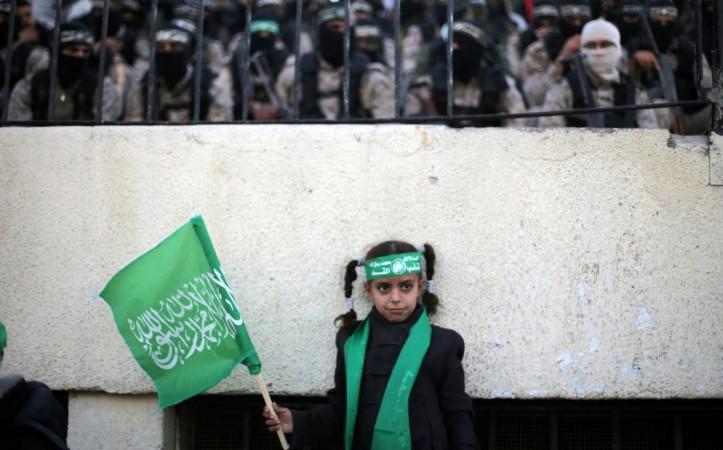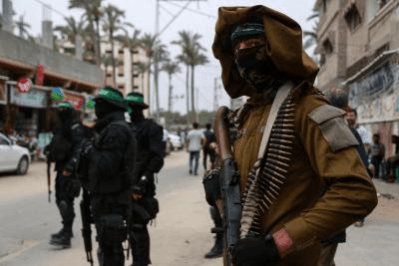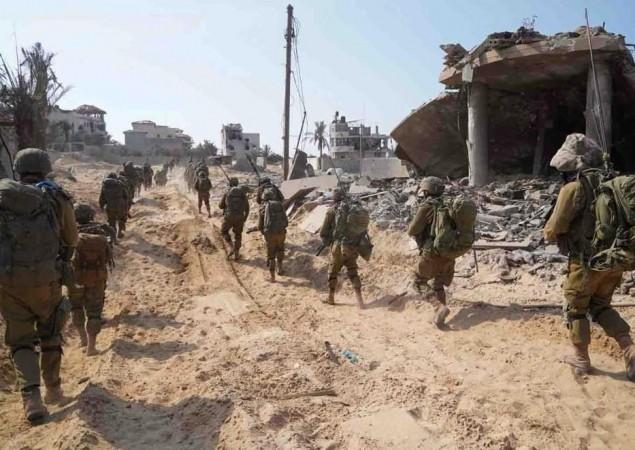Supporting Palestine and its people is a cause that many individuals around the world feel passionate about. But there is often confusion and concern about how to support the Palestinian cause without supporting acts of terrorism. The Israeli-Palestinian conflict is a long-standing and complex issue that has resulted in the suffering of many innocent Palestinians and Israelis too. While it's important to express support for the Palestinian people in their quest for justice and self-determination, it's crucial to ensure that this support does not endorse or legitimize terror groups and acts of violence.
Before delving into ways to support the Palestinian people, it's essential to understand the complexities of the conflict. Territorial disputes, historical grievances, and political, religious, and cultural complexities characterize the Israeli-Palestinian conflict. Over the years, various Palestinian organizations have engaged in the struggle for their rights and statehood. While some of these groups engage in peaceful advocacy, others use violent means, such as suicide bombings and rocket attacks, that lead to the loss of innocent lives.
It's essential to distinguish between the Palestinian people and the various groups that operate within their territory. Many Palestinians do not endorse or support terrorism. They, too, suffer from the violence and instability that terrorism brings. The United Kingdom has proscribed Hamas, the Palestinian Islamist movement, as a terrorist organization. The proscription of Hamas took place under the Terrorism Act 2000. The Home Secretary can ban an organization if there is evidence of its involvement in terrorism. Hamas was officially designated as a terrorist organization in the UK in March 2001. Yet, at that time, Hamas made the distinction between its political and military wings.

In November 2021, the UK government extended the proscription to cover the entire organization, considering the previous distinction between the wings to be artificial.
The proscription of Hamas means that it is illegal to be a member of or support the organization in the UK. This designation aligns the UK with other countries and entities that have also designated Hamas as a terrorist organization, including the United States, the European Union, and other powers. Since 2017, Ismail Haniyeh, who is based in Qatar, has been serving as the head of the Hamas political bureau and holding a senior leadership position within Hamas. Haniyeh has been living a luxurious life in Qatar since 2012. He leads and coordinates Hamas' political activities and decision-making processes. Qatar is known for its close ties with Hamas and its provision of support to the organization, including financial aid and hosting its leaders.
Hamas leaders, despite being born in refugee camps, have become wealthy. Their wealth came from legacies, charity funds, donations, and fundraisers in the US. Dr Musa Abu Marzook, a fundraiser, became a conglomerate with extensive financial enterprises. Some estimates suggest that Dr Musa Abu Marzook is worth $2-3 billion. Khaled Mashaal, another Hamas leader, has a net worth of approximately $2.6 billion. Some sources mention that Khaled Mashaal has invested in Egyptian and Persian Gulf banks and real estate projects. Ismail Haniyeh, mentioned above, has assets estimated at $4 million, held in his name and family members' names. Money for Hamas leaders came from various sources, including tunnel deals and smuggling markets. Hamas leaders also profited by taking over land, taxing merchants, and using fictitious recruitment for overseas payments. Some of Khaled Mashaal's wealth allegedly came from embezzling a Syrian fund. The corruption and pursuit of wealth among Palestinian leaders is evident, with a focus on getting rich.

This is similar to the Kashmiri separatist leaders, Kashmiri mainstream politicians and religious leaders who amassed a lot of wealth from the conflict industry that arose out of the three-decade proxy war of Pakistan in Jammu and Kashmir. They obtained cushiony government jobs for their children, built real estate wealth in various Indian cities and abroad, and secured admissions for them in Ivy League universities which were Left-dominated while traveling across India and the globe advocating for the "self-determination" of Kashmir, which translates to a merger with Pakistan. While common Kashmiris suffered not just bullets, bombs, IEDs and grenades but also economic bankruptcy from the daily strikes announced by Hurriyat thugs from their palatial bungalows and the counter-terror operations and curfews for months on end by the Indian security personnel.
This created the perception pan-India and worldwide that all Muslim Kashmiris were in support of the Pakistan-sponsored Islamic Jihad and wanted to secede from India and merge with Pakistan. It also led to sporadic attacks by Hindu extremists on secular, progressive and liberal Kashmiris living and studying in India whenever there was a terror attack like Mumbai, Pathankot and the deadly Pulwama suicide bombing. We need to separate the common non-combatants in any conflict involving Muslims from the Jihadi fighters who want to establish an Islamic State. Already there is no space or culture of dissent or critical thinking in the Muslim world since the 12th century. Asking questions or expressing dissent means immediate, often brutal reprisals, ranging from ostracism, threats, coercion to change statements and even murder.
We can achieve support for the Palestinian people by implementing a variety of constructive measures that do not endorse or support terrorism. Firstly, providing humanitarian aid to organizations working to improve the living conditions in the West Bank and Gaza, offering essential services like healthcare and education, is a valuable way to help those in need. Advocating for peaceful solutions is crucial, emphasizing diplomacy, dialogue, and a two-state coexistence as the means to resolve the Israeli-Palestinian conflict. India's official position has always been in support of the rights of the Palestinian people, while at the same time acknowledging the right of Israel to exist and defend itself.

Engaging with grassroots initiatives can promote reconciliation and cooperation between Israelis and Palestinians. A lot of X's (formerly Twitter) Spaces have been doing that these past few difficult days and there have been remarkable messages of solidarity exchanged between Palestinians and Israelis from all over. Additionally, raising awareness about the challenges Palestinians face, engaging in interfaith dialogue, and supporting Palestinian art and culture are all means of supporting the Palestinian cause without endorsing terrorism.
It is imperative to condemn terrorism by ensuring that our support does not fund such organizations, rejecting violent rhetoric, promoting nonviolence, and encouraging constructive dialogue between Palestinians and Israelis committed to peace. These approaches can contribute to a lasting resolution of the conflict while respecting the rights and dignity of all parties involved. Indians themselves, victims of Islamic terrorism are leading the way.
[Disclaimer: This is an authored article by Arshia Malik. Views expressed are author's own.]

















